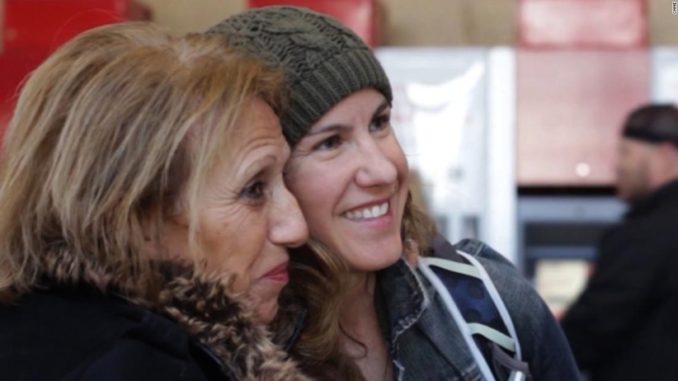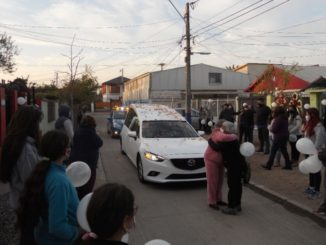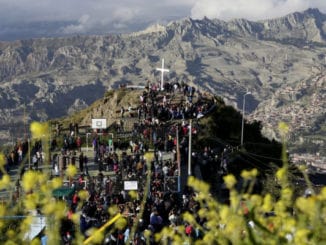
SANTIAGO – An American woman who was separated from her family as a newborn baby in Chile 36 years ago has finally reunited with meets her biological mother for the first time in her native country.
“I’ve been waiting my whole life to find my mother,” Alisa Clare Cohen told CNN as she hugged her mother on Saturday.
She grew up in the United States with her adoptive parents. She said they were always forthcoming about her adoption and the country she came from.
Wondering if she had truly been abandoned, as her adoption documents state, Cohen contacted Chilean authorities in February to ask for help in finding her biological parents. And finally she got the answer she was hoping for.
Her biological mother, Silvia Beatriz Córdova said she never intended to give her up for adoption. “No, no, no. Never, never,” Córdova said. ”I had already made a bassinet for her. I made it myself. I made it when I learned I was in the third month of my pregnancy.”
Córdova says she had a very difficult labor and nearly died. “I saw her when she was born and didn’t see her again. I was hospitalized for three to four months,” Córdova recalled.
During that time, she, her husband and other members of the family asked employees at the state-run hospital about their daughter, but they never saw her again.
Chile was living under the military dictatorship of Augusto Pinochet and Córdova and her family feared that asking too many questions would put them in danger.
‘Children of silence’
Chilean government officials believe there were so many questionable adoptions back then that authorities now have a name for babies like Alisa.
They’re called “children of silence.” They’re babies who were taken away from their biological parents in the 70s and 80s, in many cases without their consent or knowledge, and given to adoptive parents.
Those children are now in their 30s and 40s and are asking questions about a secret that was kept for four decades.
In 2015, Chilean authorities named a special prosecutor to begin investigating a list of these so-called “irregular adoptions,” a list that is reported to include nearly 600 families.
Constanza del Río heads an organization that helps families find each other and has an even larger list.
The hospital where Cohen was born no longer exists and the same goes for the adoption agency.
Cohen’s adoptive parents passed away a few years ago, so her Chilean family, and an adopted sister, are all she’s got. Neither one of them speaks the other’s language.



